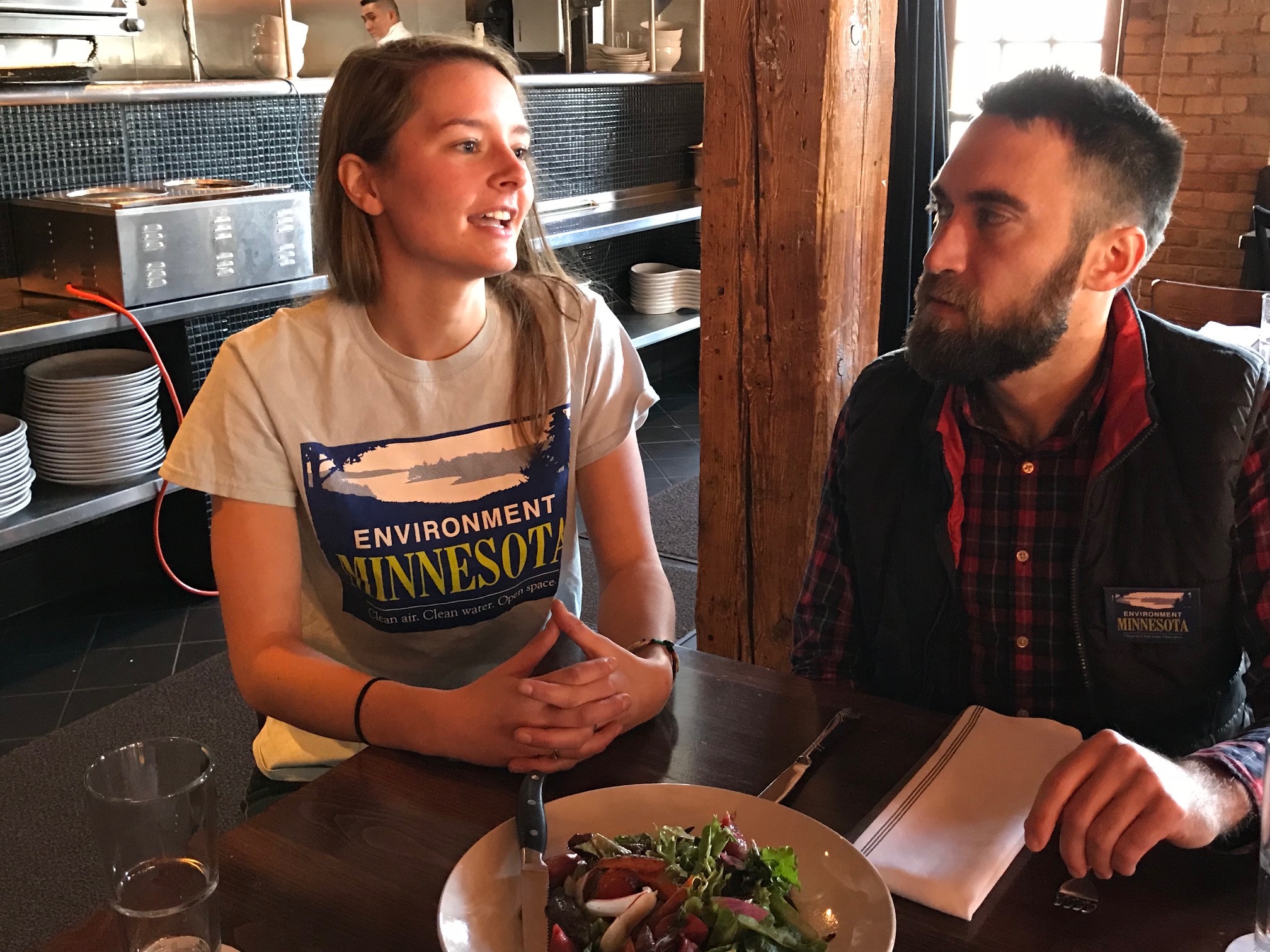Timothy Schaefer
Minneapolis, Minnesota — “There’s almost no safe place for a bee to exist.”
That’s the bottom line from a new study, which reveals that three-quarters of all honey worldwide is contaminated with neonicotinoids (“neonics”), a widely used class of bee-killing pesticides.
The rate at which we’re losing bees could prove catastrophic for our food supply.
“We’re thankful for bees this Thanksgiving,” said Tim Schaefer, Environment Minnesota’s director. “Without bees, Thanksgiving dinners in Minnesota would look and taste different. No bees means no pumpkin pie.”
Beekeepers have already lost 33% of their bees — just in the last two years – but we rely on bees to pollinate 71 of the 100 crops that provide 90 percent of the world’s food.
The pesticide levels found in 198 worldwide honey samples are a death sentence for bees.
“Bees are vital to what we do,” says Kim Bartmann, owner of several renowned restaurants in the Twin Cities with a sustainability focus, including Red Stag Supper Club, Tiny Diner, and the Third Bird. “Our partner farmers rely on bees to pollinate Thanksgiving essentials like apples, squash, pumpkins, cranberries, and green beans. It’s hard to imagine how our food supply would survive without them.”
Scientists point to several reasons why bees are dying off, including global warming, habitat loss, parasites and a class of bee-killing pesticides known as neonicotinoids, or neonics. Neonicotinoids work as nerve agents — they attack bees’ brains and ability to learn and navigate, and they make them more susceptible to parasites and disease.
Minnesota has made steady progress to save the bees. Last year, Governor Dayton issued an Executive Order limiting use of neonics, but right now the Minnesota Department of Agriculture doesn’t have any authority to regulate pre-treated seeds. This means that if a seed is sprayed with pesticide outside the state, then brought into Minnesota, the MDA can’t do anything about it.
Pre-treated neonic seeds are a huge part of the problem, though. According to an MDA study from last year, pre-treated neonic seeds account for as much as 98 percent of the acreage of corn, soybean, wheat, cotton, and sorghum in North America. Right now, it’s very difficult for farmers to find seeds that aren’t pre-treated with neonicotinoids.
That’s why Minnesota’s legislature and the MDA need to incentivize farmers to transition away from pre-treated neonicotinoid seeds.
While Environment Minnesota continues our work to protect our air and water and put us on a path to 100 percent renewable energy, our No Bees, No Food campaign is educating and involving the public and advocating for bans on bee-killing pesticides.

